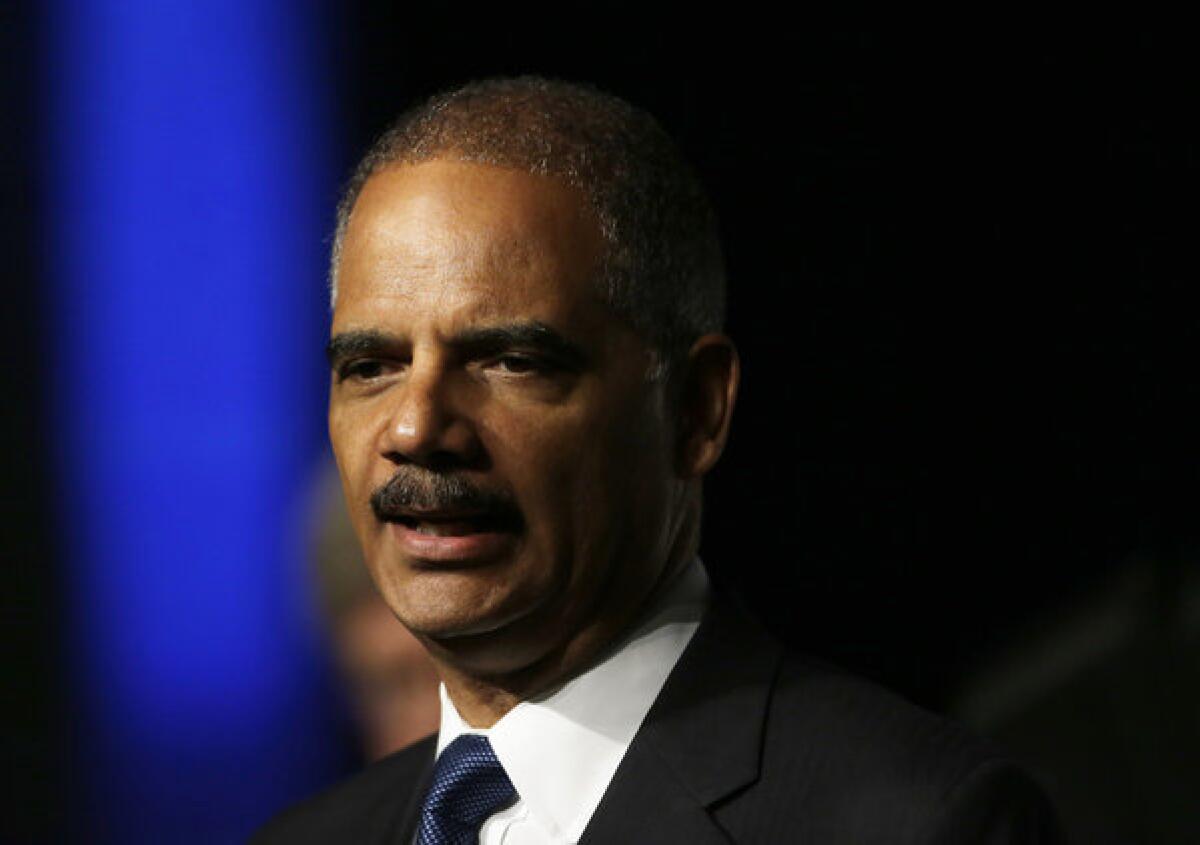Rethinking drug sentences

With an eye toward reducing what even many conservatives concede is excessive incarceration of minor drug offenders, Atty. Gen. Eric H. Holder Jr. announced Monday that federal prosecutors would be directed to file charges in a way that would spare many defendants from mandatory minimum sentences. That policy is a sound and compassionate response to the fact that too many people are being imprisoned for too long, by state and federal governments alike, because of a war on drugs that has been prosecuted not wisely but too well.
In a speech to the American Bar Assn., Holder said that henceforth, “low-level, nonviolent drug offenders who have no ties to large-scale organizations, gangs or cartels will no longer be charged with offenses that impose draconian mandatory minimum sentences.” One way to accomplish that is for prosecutors to omit from drug-trafficking indictments the specific quantities of drugs found in the defendants’ possession. Holder also told the ABA that he would instruct federal prosecutors to be more selective in asserting jurisdiction in drug cases, and that the federal prison system would expedite the “compassionate release” of elderly, nonviolent inmates.
In the 1980s, after the cocaine overdose of basketball star Len Bias, Congress enacted mandatory minimum sentences for drug offenses that take discretion away from federal judges and limit the ability of the U.S. Sentencing Commission to adopt more lenient guidelines. Mandatory minimums also, as Holder said in his speech, “oftentimes generate unfairly long sentences [and] breed disrespect for the system.” Incarceration for drug offenses also has devastated many minority communities, breaking up families and depriving children of their fathers.
Ideally, Congress would revisit the issue of mandatory minimums, and not just for drug crimes. In 1994, it did enact a “safety valve” law that instructs judges to disregard mandatory minimums if a drug defendant has little or no criminal history and meets several other exacting conditions. As Holder noted in his speech, legislation recently introduced in Congress would provide additional leeway for judges and would “ultimately save our country billions of dollars while keeping us safe.” The attorney general said he and President Obama would work with Congress to advance such proposals, but he was right to act in the absence of congressional action. If members of Congress resent Holder’s exercise of prosecutorial discretion to restore a sense of proportion to drug prosecutions, they can reassert their authority by accomplishing the same objective through legislation.
More to Read
A cure for the common opinion
Get thought-provoking perspectives with our weekly newsletter.
You may occasionally receive promotional content from the Los Angeles Times.










